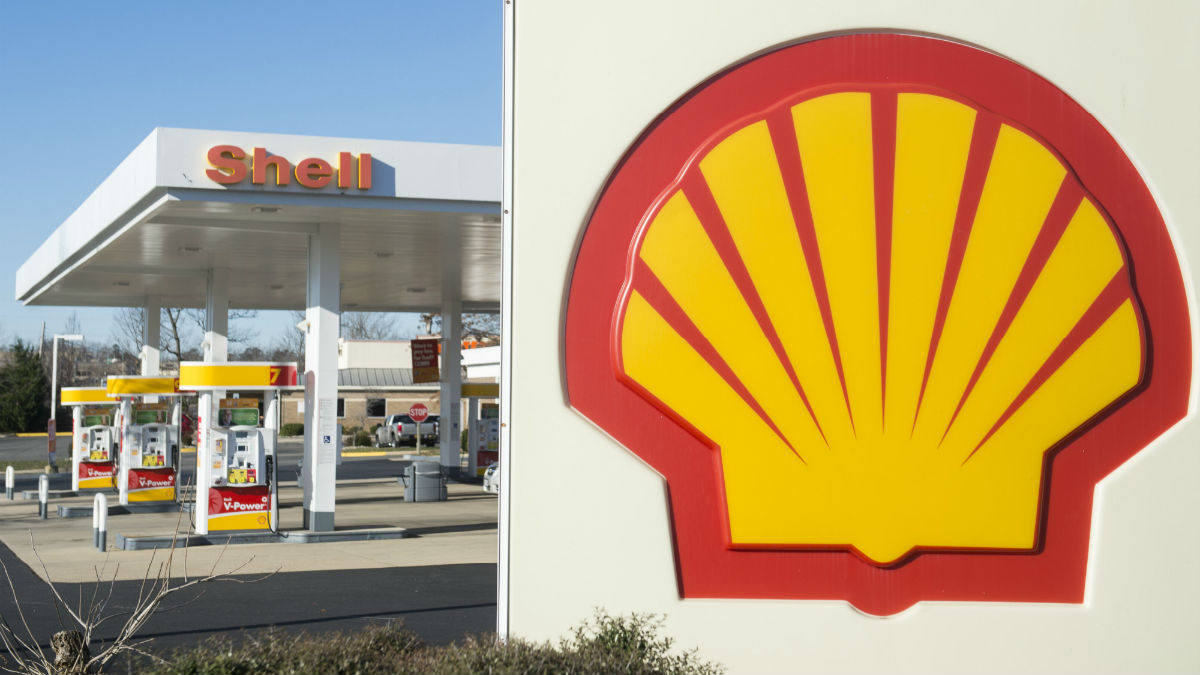Shell admits dealing with Nigerian money launderer
Oil major acknowledges it held talks with Dan Etete during negotiations to buy OPL 245 oilfield

A free daily email with the biggest news stories of the day – and the best features from TheWeek.com
You are now subscribed
Your newsletter sign-up was successful
Shell has admitted it dealt with a money launderer when it struck a deal with Nigeria over an oilfield it hoped to exploit.
Up to now, the oil major has insisted it dealt with the Nigerian government when it, along with Italian company ENI, negotiated a $1.3bn deal to buy the rights of the OPL 245, a prime oil block off the coast of the Niger Delta.
However, emails uncovered and published by the Global Witness and Finance Uncovered charities reveal Shell held talks with a man called Dan Etete for up to a year before the 2011 deal.
The Week
Escape your echo chamber. Get the facts behind the news, plus analysis from multiple perspectives.

Sign up for The Week's Free Newsletters
From our morning news briefing to a weekly Good News Newsletter, get the best of The Week delivered directly to your inbox.
From our morning news briefing to a weekly Good News Newsletter, get the best of The Week delivered directly to your inbox.
"Etete… was later convicted of money laundering in a separate case," says the BBC.
Italian prosecutors allege that $1.1bn of the money paid to Nigeria was passed on to Malabu, a company controlled by Etete.
"Documents filed by the Italian prosecutors claim that $466m of that sum was then laundered through bureau de change and passed on to the then president, Goodluck Jonathan, and members of his government," adds the BBC.
Shell has released a stating admitting it negotiated with Etete, but that the payments went through the Nigerian government and were made according to international law.
A free daily email with the biggest news stories of the day – and the best features from TheWeek.com
"Over the course of several years, Shell made repeated attempts to fully establish and understand Malabu's ownership structure, including the exact role of Mr Etete in Malabu," continues the BBC.
"Over time it became clear to us that Etete was involved in Malabu and that the only way to resolve the impasse through a negotiated settlement was to engage with Etete and Malabu, whether we liked it or not. This was consistent with the Federal Government of Nigeria's (FGN) position.
"From the complex multi-party negotiations that followed, we knew the FGN would compensate Malabu to settle its claim on the block. We believe that the settlement was a fully legal transaction with the FGN."
-
 Why are election experts taking Trump’s midterm threats seriously?
Why are election experts taking Trump’s midterm threats seriously?IN THE SPOTLIGHT As the president muses about polling place deployments and a centralized electoral system aimed at one-party control, lawmakers are taking this administration at its word
-
 ‘Restaurateurs have become millionaires’
‘Restaurateurs have become millionaires’Instant Opinion Opinion, comment and editorials of the day
-
 Earth is rapidly approaching a ‘hothouse’ trajectory of warming
Earth is rapidly approaching a ‘hothouse’ trajectory of warmingThe explainer It may become impossible to fix
-
 Labour shortages: the ‘most urgent problem’ facing the UK economy right now
Labour shortages: the ‘most urgent problem’ facing the UK economy right nowSpeed Read Britain is currently in the grip of an ‘employment crisis’
-
 Will the energy war hurt Europe more than Russia?
Will the energy war hurt Europe more than Russia?Speed Read European Commission proposes a total ban on Russian oil
-
 Will Elon Musk manage to take over Twitter?
Will Elon Musk manage to take over Twitter?Speed Read The world’s richest man has launched a hostile takeover bid worth $43bn
-
 Shoppers urged not to buy into dodgy Black Friday deals
Shoppers urged not to buy into dodgy Black Friday dealsSpeed Read Consumer watchdog says better prices can be had on most of the so-called bargain offers
-
 Ryanair: readying for departure from London
Ryanair: readying for departure from LondonSpeed Read Plans to delist Ryanair from the London Stock Exchange could spell ‘another blow’ to the ‘dwindling’ London market
-
 Out of fashion: Asos ‘curse’ has struck again
Out of fashion: Asos ‘curse’ has struck againSpeed Read Share price tumbles following the departure of CEO Nick Beighton
-
 Universal Music’s blockbuster listing: don’t stop me now…
Universal Music’s blockbuster listing: don’t stop me now…Speed Read Investors are betting heavily that the ‘boom in music streaming’, which has transformed Universal’s fortunes, ‘still has a long way to go’
-
 EasyJet/Wizz: battle for air supremacy
EasyJet/Wizz: battle for air supremacySpeed Read ‘Wizz’s cheeky takeover bid will have come as a blow to the corporate ego’